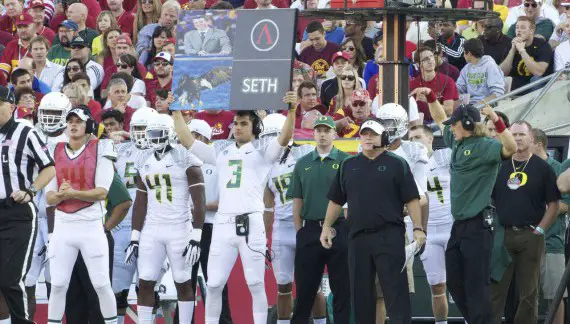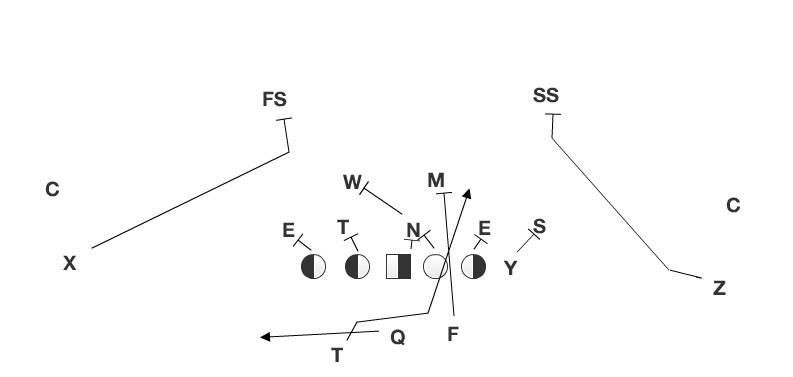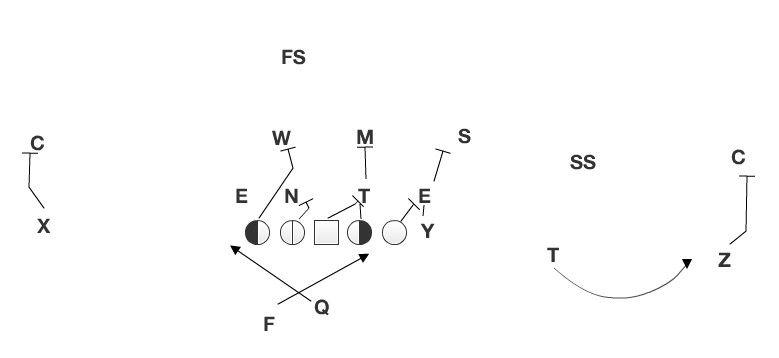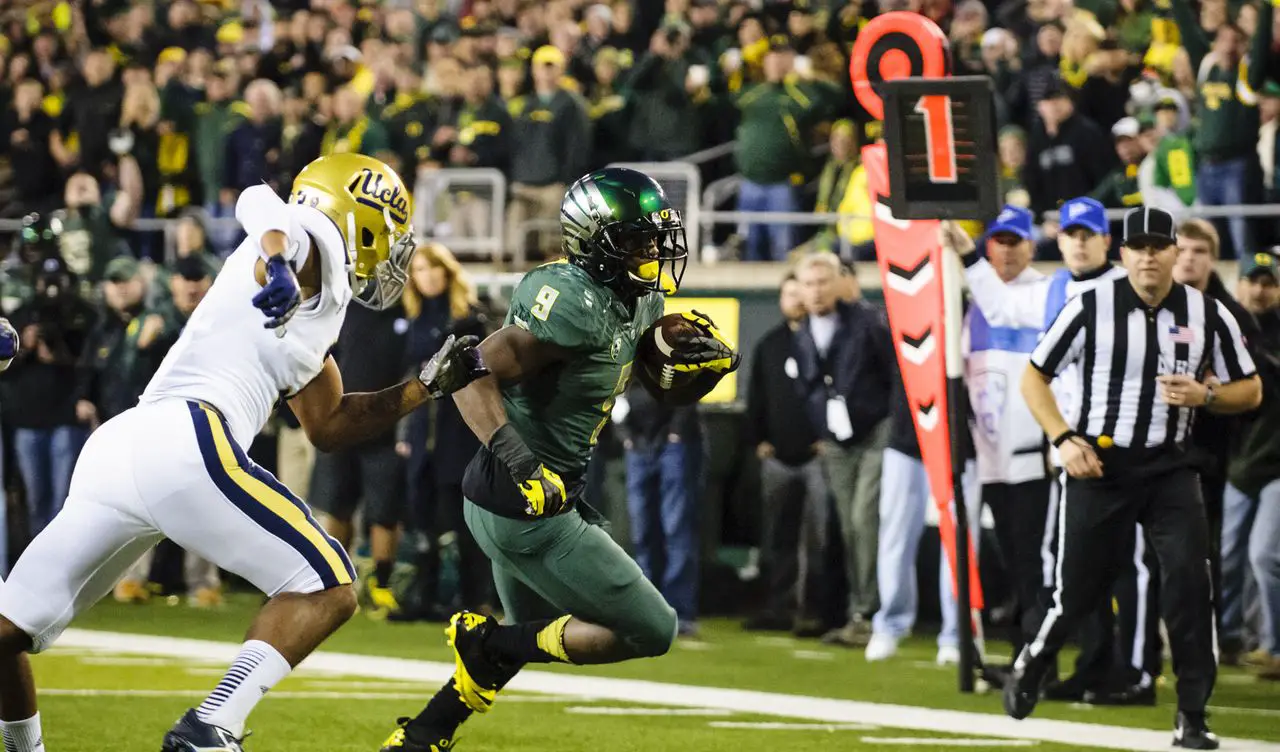The trademark of the Oregon offense since the start of the Chip Kelly era has been the speed with which the ball gets moved down the field. The Ducks have a habit of marching down and scoring in a hurry, and since Mark Helfrich took over last season, not much has changed.
Since the Chip Kelly offense took over at Oregon, one of the most familiar scenes in Autzen Stadium is assistant coaches shuffling up and down the sidelines with large boards used for communicating the plays to the guys on the field. To most observers, these look like a bunch of pictures and words that are impossible to decipher, but to the coaches and players, it’s a language all their own.
The boards have even been featured in commercials such as this one for ESPN College Gameday.
That said, if you’re a coach who wants to get your guys to play faster, you don’t need a complicated system of boards, smoke signals and carrier pigeons to call plays. You can add an up-tempo element to your offense by following a few tips I’m about to share with you. Here are three ways you can play faster and get the defense on their heels.
1. Repeating the Play
The simplest and often most effective way to get your offense moving quickly is to have them repeat the play they just ran. There are a couple of good reasons to do this.
Maybe that run play up the middle that you just called, exposed a flaw in the defense and you want to keep at it until they can stop it. Maybe the defense is in the middle of substituting and you want to catch them with too many men on the field, or with players out of position. Or maybe the play you called last is an all-purpose play — something that is good against just about everything.
The key is to have a single word that’s distinguishable from the rest of your no-huddle terminology, and one that can be heard above all the crowd noise.
2. The Speed Dial Approach
The next step in the progression is to add several other one-word calls to your offense. This gives you the ability to not only go fast, but also to stay a little unpredictable as well so that when your team is rushing to the line, the defense doesn’t already know what you’re going to run. It can also be useful to teams with versatile skill position players who have the speed to play out in space or can get tough with defenders in the box.
For example, on the first play the offense can bring out its “regular” personnel and line up in a two-back set such as the one in the diagram below.
The defense may start anticipating a more smashmouth approach with this group out on the field, but with some versatility at the running back position, they can easily line up the next play in a one-back set and spread the defense out. In this next diagram, we see the same players on the field for the offense, only now the tailback is lined up in the slot and running a bubble route, in addition to the zone read play being run up the middle.
Playing games like these with personnel helps keep the offense one step ahead at all times.
A lot of coaches love to use words that start with the letters ‘R’ and ‘L,’ for obvious reasons. This gives an offense the ability to run the same play to both sides. For example, if a coach wants to run the zone read to the right, he’ll call “rocket,” and if he wants to call it to the left, he’ll call “laser.”
There are plenty of coaches who do this sort of thing even at the high school level, since they can just give their players wristbands with a list of plays on them.
Depending on the opponent, a coaching staff may decide that there are some plays they want to keep from the week before, and a couple of new plays that are better against the defense they’re going to see that week. Like a lot of things in football, it depends on what your players are comfortable with and what they can handle.
3. Pre-Planned Sequence of Plays
Finally, if you want to go extremely high-speed on offense, you can practice 1-2 sequences that can last anywhere from 4-8 plays. Like everything else we’ve talked about, you can either have your players memorize the sequences or put the plays on a wristband for them to wear.
An effective use of this method speeds up your offense in two ways. First, your players already know what the next play is, so you’re not using time in between snaps to get the call in. Second, your guys will play faster the more acclimated they are to the speed and the sequence of plays.
This is something that Chip Kelly practiced at Oregon and took with him when he left for Philadelphia. A close examination of several Eagles games from this past season reveals many instances where Nick Foles and the offense ran certain plays during the opening series of the game, and then they came back and ran the exact same plays in the exact order during the next series.
The amount of flexibility you have is only limited by what you think your players can handle. Some coaches feel fine changing their sequences each week, while others want their players to get familiar with the same plays and don’t change a thing. They want it to become second nature to their guys so they don’t have to think about it.
When deciding what plays to include, some questions a coach might ask include:
- What formations put the most stress on my opponent?
- What are my “bread-and-butter” plays that I can run no matter how the defense lines up?
- How do I make sure I’m getting the ball to my best players out in space?
- What happens if my opponent does something I don’t expect?
The great thing about this method of playcalling is that you can jump out of it at any time, so you won’t be stuck running the ball up the middle if the last play didn’t go so well and now it’s 3rd-and-nine.
Coaches are always coming up with new and creative ways to gain an advantage. If you’re a coach, I hope this post gave you some ideas, and if you’re a fan, I hope you learned something.
Featured Image by Kaly Harward
Alex Kirby (Writer and Football Analyst) worked several seasons as an assistant football coach at the high school and college levels and is the author of Speed Kills: Breaking Down the Chip Kelly Offense, now available HERE.





